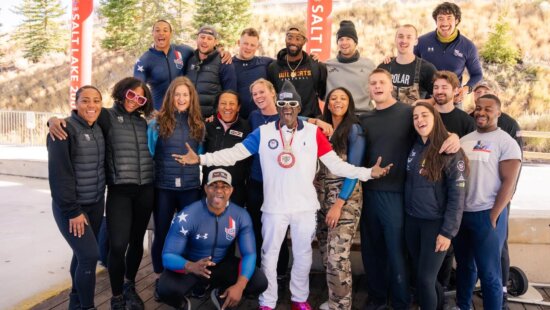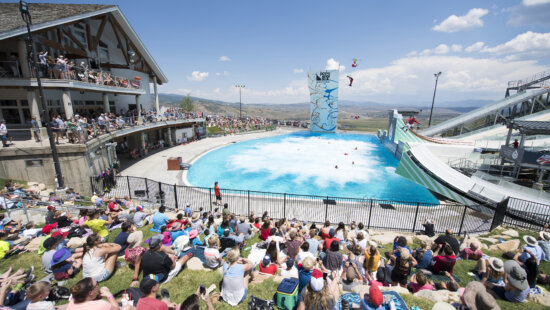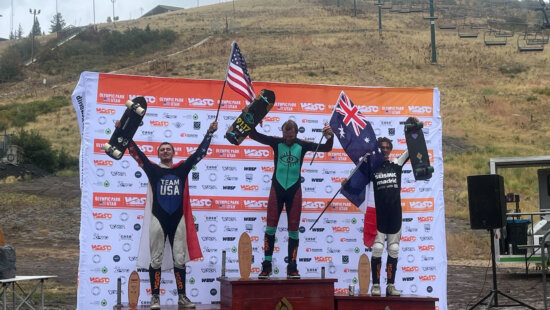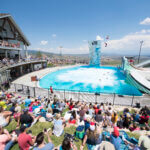Sports
Jamaican Bobsled Team joins IOC’s solidarity series at the UOP

The Jamaican Bobsled Team is sliding bobsleds at the Utah Olympic Park. Photo: TownLift // Roepke
PARK CITY, Utah — The Utah Olympic Park is hosting a week of bobsled and skeleton training for “smaller nations” within the International Olympic Committee’s “Olympic Solidarity” and “Universality Places” policies and procedures.
The teams in town include Jamaica, Brazil, Israel, Ghana, South Africa, Spain, Tunisia, India, Taipei, Japan, Latvia, and Thailand (seen photographed below).

Universality places are guaranteed spots in the Olympic Games for athletes from nations that traditionally send small delegations or have very few qualified athletes in specific sports. These places are allocated by the Olympic Games Tripartite Commission (comprised of the IOC, the Association of National Olympic Committees, and International Sports Federations) to increase the broad range of participating nations across the sports program.
Olympic Solidarity Programs provides substantial financial and logistical assistance to all NOCs, with a specific emphasis on those most in need. Programs include athlete development with support for identifying, training, and preparing young athletes for major competitions, including the Youth Olympic Games.
Pre-Games Training Camps like this one also provide subsidies and organizational support to help athletes acclimate to the host country, train at peak physical condition, and bond with other athletes. For example, for the Paris 2024 Games, multi-sport camps were organized to assist smaller NOCs with logistics and finances.
Additionally, programs also focus on the training of coaches and sports administrators to help build sustainable national sports structures.
The underlying philosophical principle of these initiatives is the Olympic value of “universality” and ensuring all eligible athletes, regardless of their nation’s size or resources, have the opportunity to participate and compete peacefully and on an equal footing.
In essence, the IOC’s approach is to provide targeted assistance and guaranteed participation pathways to overcome the financial and logistical barriers that might otherwise prevent athletes from smaller or less-resourced nations from fully participating in the Olympic Movement.
In order to be considered to qualify to compete at an Olympics, these teams are required to safely and successfully slide at a pre-determined number of similar training sessions in a certain number of tracks in a known number of nations leading up to the 2026 Milano-Cortina Winter Olympic Games.


















